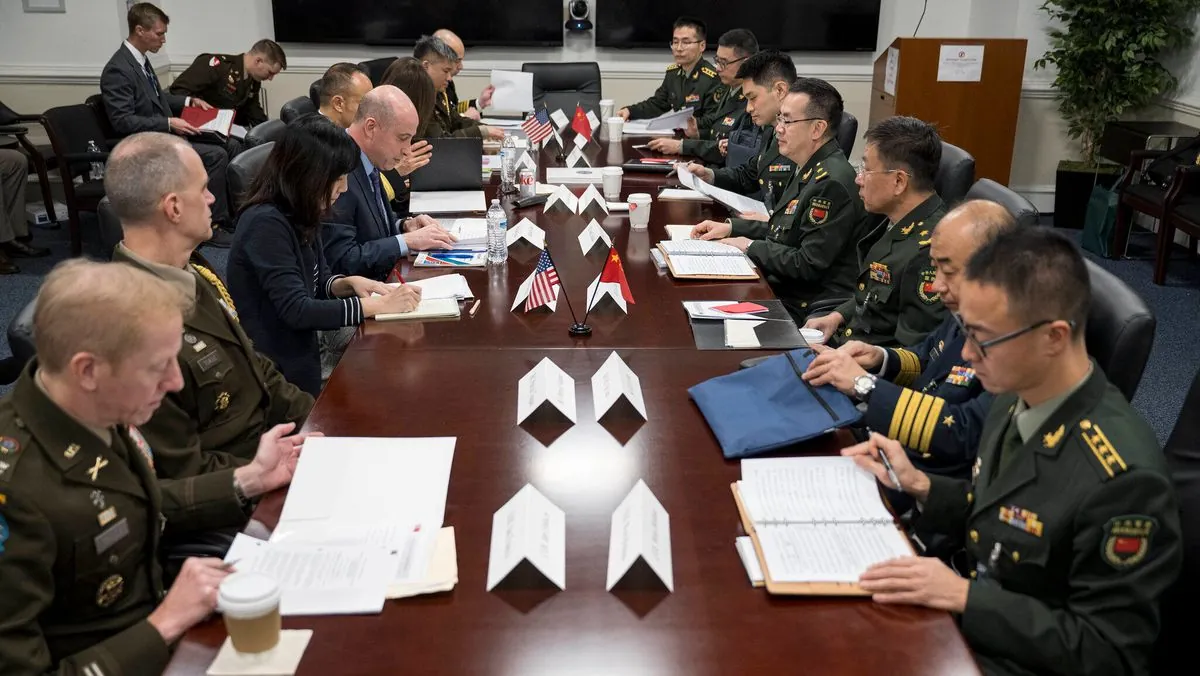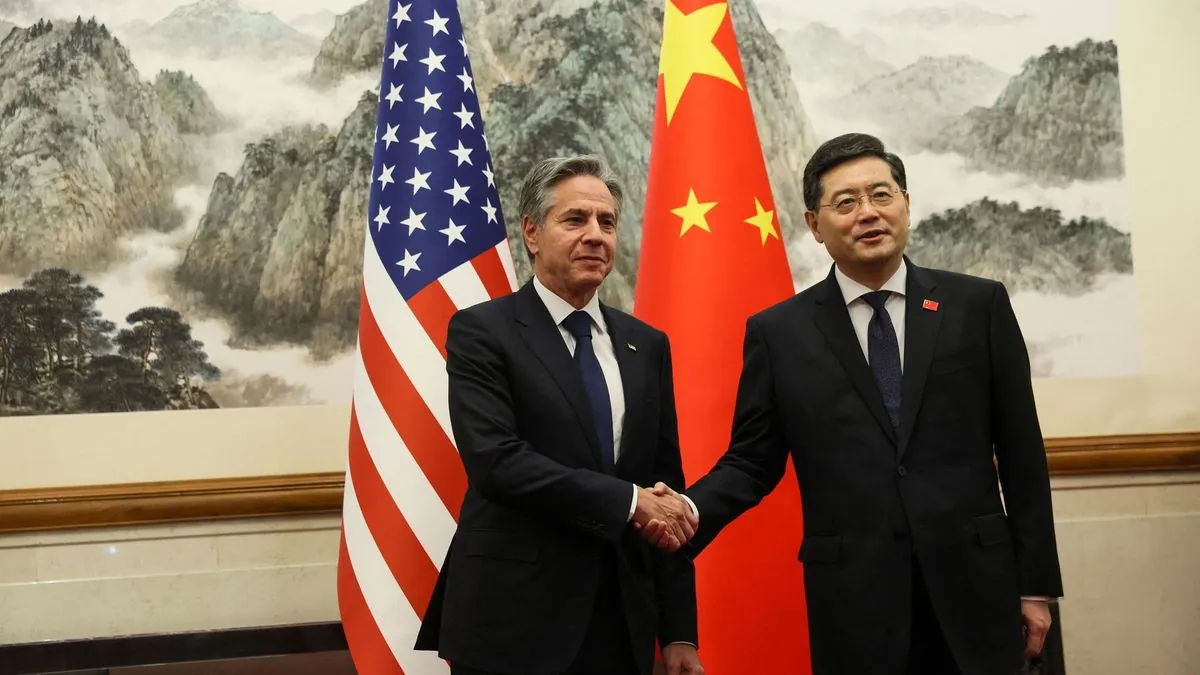China-US Talks Address Taiwan and South China Sea Tensions
China's foreign minister emphasizes Taiwan as a regional stability threat during US official's visit. Discussions cover Taiwan, South China Sea disputes, and plans for future high-level communications.

Recent diplomatic discussions between China and the United States have highlighted ongoing tensions in East Asia, particularly regarding Taiwan and the South China Sea. These talks, occurring amidst complex geopolitical dynamics, underscore the delicate balance of power in the region.
During a meeting in Beijing, Chinese Foreign Minister Wang Yi expressed concerns about Taiwan's independence, identifying it as a significant threat to regional stability. This statement reflects China's long-standing position on the island, which it considers its 23rd province despite Taiwan's de facto independence since 1949. The complex history of Taiwan-China relations dates back 75 years, with the island maintaining its separate governance system.
US National Security Adviser Jake Sullivan visited Beijing for these discussions, demonstrating ongoing efforts to maintain open lines of communication between the two global powers. The talks covered various critical issues, including the status of Taiwan and the broader US-China relationship.

The White House reported plans for a high-level call between leaders in the coming weeks, signaling a commitment to ongoing dialogue. This communication is crucial, given the intricate nature of US-China relations, which blend economic interdependence with geopolitical rivalry.
Despite political differences, economic ties between China and the US remain strong. China, as the world's second-largest economy by nominal GDP, continues to be a significant trade partner for the US. This economic relationship has persisted even through recent challenges, including the trade tensions that began in 2018.
The South China Sea emerged as another focal point of the discussions. The US has consistently challenged China's expansive claims in the region, which are symbolized by the "nine-dash line" encompassing most of the sea. This stance aligns with the US commitment to freedom of navigation and support for its regional allies.
"Sullivan underscored the importance of maintaining peace and stability across the Taiwan Strait."
The Philippines, a US ally with a mutual defense treaty dating back to 1951, has called for increased involvement from the Association of Southeast Asian Nations (ASEAN) in addressing South China Sea disputes. ASEAN, established in 1967, has been working on a Code of Conduct for the South China Sea since 2002, highlighting the long-standing nature of these territorial issues.
China's growing military capabilities and assertive stance on territorial claims have raised concerns among neighboring countries and the international community. The US and China have agreed to maintain regular military-to-military communications, with plans for a theater commander telephone call in the near future.
As these diplomatic efforts continue, the international community watches closely, recognizing the significant impact US-China relations have on global stability and economic prosperity.


































